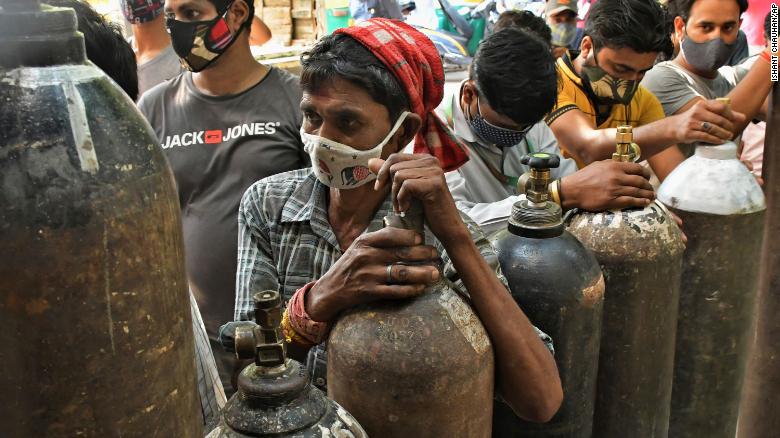SOURCE: (CNN) — Indian Prime Minister Narendra Modi is under increasing pressure to impose a nationwide lockdown as the country grapples with the world’s worst Covid-19 outbreak.
On Monday, India reported 366,161 new cases, its health ministry said — the first time daily infections have dipped below 400,000 since May 6. Its total caseload is now more than 22 million since the pandemic began.
“You’ve got to shut down. I believe several of the Indian states have already done that, but you need to break the chain of transmission, and one of the ways to do that is to shut down,” Fauci said on ABC’s “This Week.”
In a separate interview with CNN affiliate CNN News18 on Friday, Fauci added such a lockdown was needed to “get ahead of the trajectory of the outbreak.”
“I don’t mean shutting down for six months,” he said. “You just need to break the chain of transmission. And one can do that by shutting down to the extent possible for two, three weeks, four weeks. And then, as soon as the cases start coming down and you vaccinate more people, then you can get ahead of the trajectory of the outbreak.”
The IMA said “sporadic night curfews” and other restrictions imposed by several states “have not done any good.”
India imposed one of the world’s largest and harshest lockdowns in March last year, when the country of 1.36 billion people had reported little more than 500 coronavirus cases and 10 related deaths.
The nationwide measure was announced with less than four hours’ notice and little planning, triggering a migrant crisis. It also brought the country’s economic activity to a virtual standstill, with businesses, factories and construction sites ground to a halt.
It has been left up to the states to decide when and how to implement these zones.
Indian variant contributing to crisis
In an interview with Agence France-Presse (AFP) Saturday, the World Health Organization’s chief scientist said the Covid-19 variant spreading in India, known as B 1.617, is more contagious and is contributing to the crisis there.
Soumya Swaminathan warned “the epidemiological features that we see in India today do indicate that it’s an extremely rapidly spreading variant.” She also said large gatherings, social mixing, the relaxation of mask-wearing and other protection measures were also to blame.
The variant, first identified in India in October, is listed by WHO as a “variant of interest” — but Swaminathan said it could soon be labeled a “variant of concern,” which indicates it is more dangerous than the original strain.
“B 1.617 is likely to be a variant of concern because it has some mutations which increase transmission, and which also potentially could make (it) resistant to antibodies that are generated by vaccination or by natural infection,” she said.
As infections increase, at least 24 of India’s 36 states and union territories are under full Covid-19 lockdowns, according to CNN data compiled from state governments.
And several regional authorities have announced in the past week fresh restrictions with some extending or tightening previously set guidelines.
Last weekend, the western state of Gujarat and the northern states of Uttar Pradesh — India’s most populous — and Uttarakhand imposed or extended lockdowns.
In a statement, the Uttar Pradesh government announced an extension for another seven days until May 17, with only essential services allowed to function. “Only medical related work, vaccinations, commercial activities which are providing essential services will be allowed,” the statement read.
A total of 36 cities in Gujarat will see their lockdowns extended until May 12, according to the state government.




